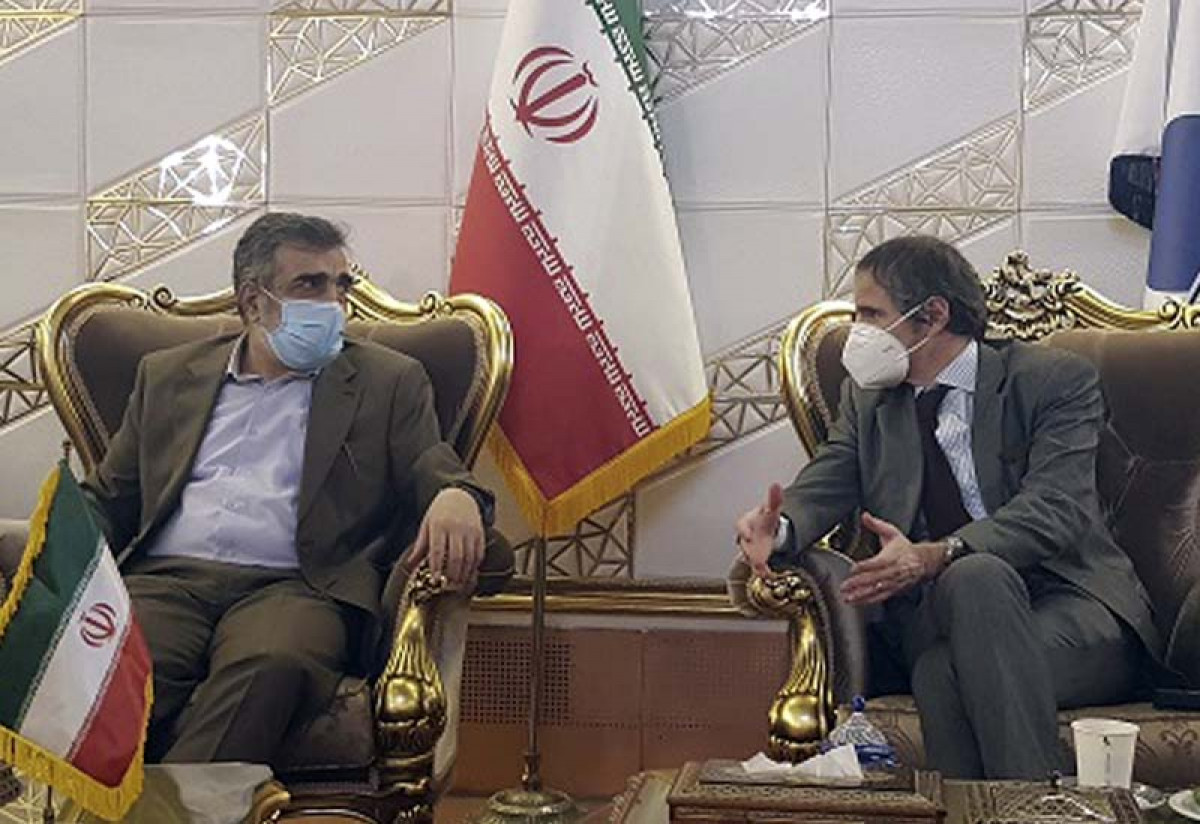
In this February 20, 2021, file photo, Director General of International Atomic Energy Agency, IAEA, Rafael Mariano Grossi, right, speaks with spokesman of Iran's atomic agency Behrouz Kamalvandi upon his arrival at Tehran's Imam Khomeini airport, Iran. Iran has said it plans to cease its implementation of the 'Additional Protocol', a confidential agreement between Tehran and the IAEA reached as part of the landmark nuclear accord that grants the UN inspectors enhanced powers to visit nuclear facilities and watch Iran's programme. (Photo via AP)
US Secretary of State Antony Blinken said on Monday that it remains unclear if Tehran is willing to take steps to return to compliance with the Iran nuclear deal.
"We've been engaged in indirect conversations ... for the last couple of months, and it remains unclear whether Iran is willing and prepared to do what it needs to do to come back into compliance," Blinken told a hearing of the House Foreign Affairs Committee.
"We're not even at the stage of returning to compliance for compliance," he said. "We don't know if that's actually going to happen."
Blinken made similar comments in an interview in late May.
The United States and Iran have held five rounds of indirect negotiations in Austria's capital Vienna since April aimed at reviving the nuclear deal, formally known as the Joint Comprehensive Plan of Action (JCPOA).
Blinken's words were met with an immediate response from Iranian Foreign Minister Mohammad Javad Zarif. He tweeted "it remains unclear whether @POTUS (President Joe Biden) and @SecBlinken are ready to bury the failed 'maximum pressure' policy of Trump ... and cease using #EconomicTerrorism as bargaining 'leverage.'"
The US government under former President Donald Trump withdrew from the JCPOA in May 2018 and unilaterally re-imposed sanctions on Iran. In response, Iran gradually stopped implementing parts of its JCPOA commitments from May 2019.












